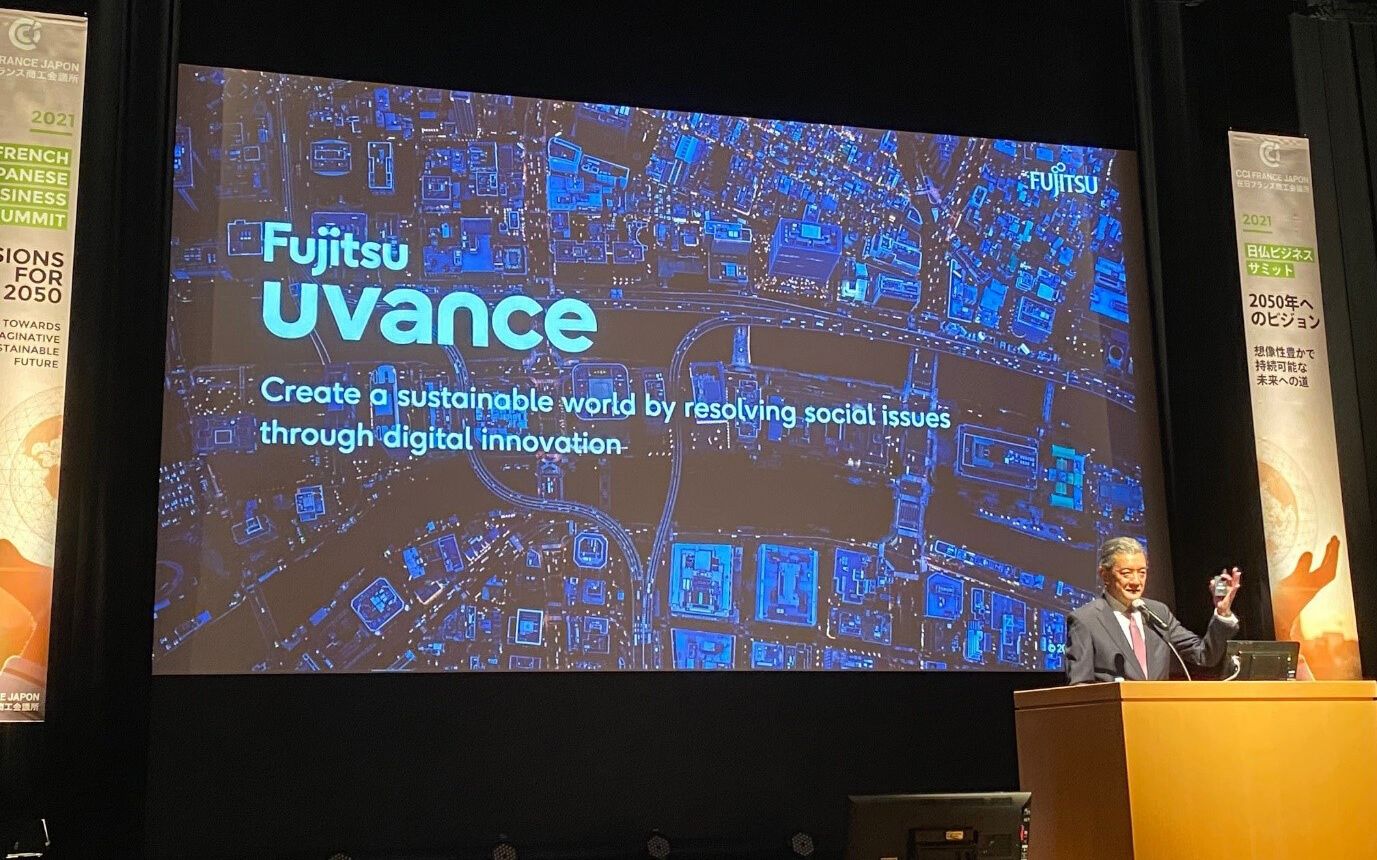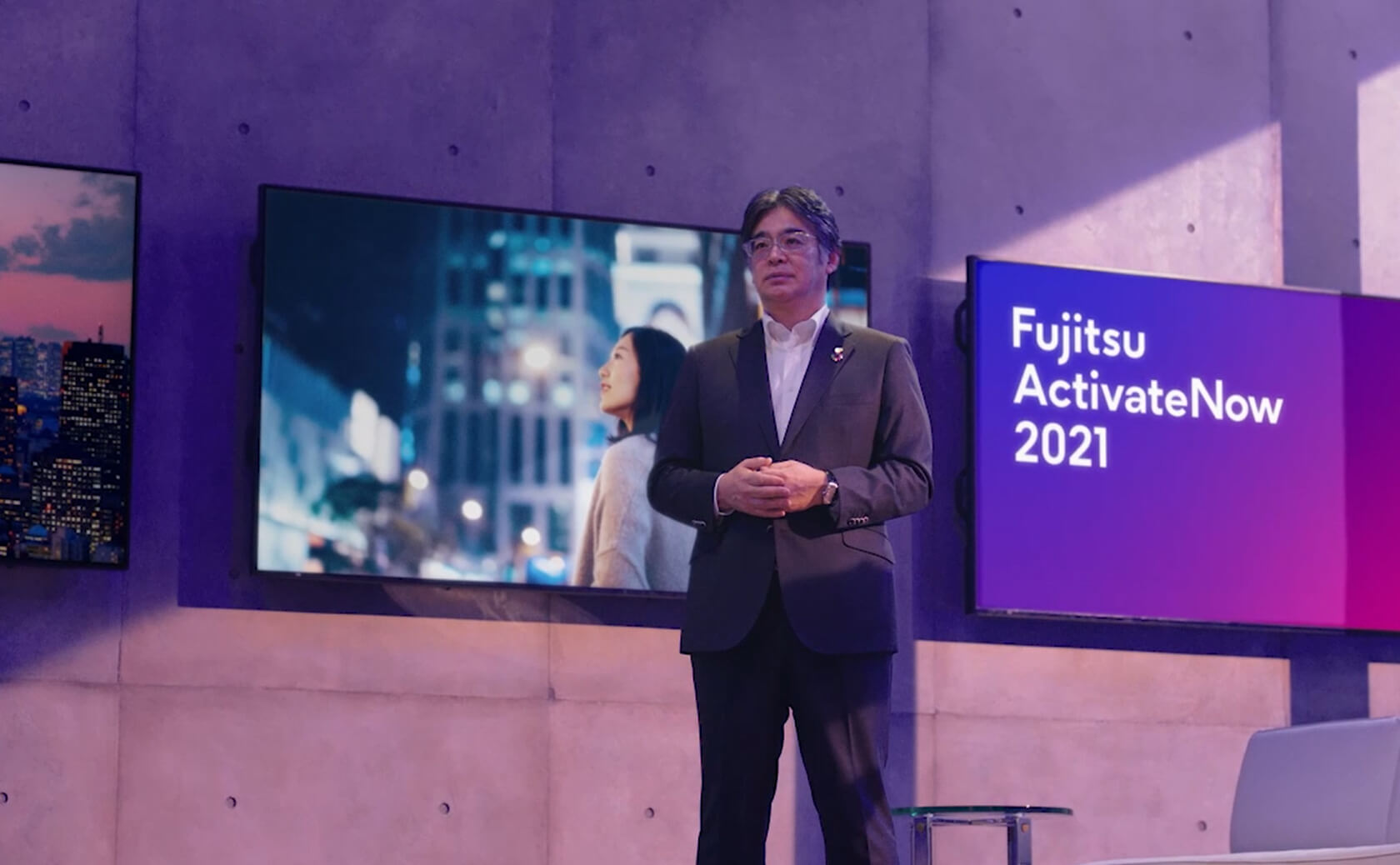The Vision of the Future with Human-Centered Technology [Part 1]
Fujitsu / February 28, 2022
On January 19th and 20th, 2022, Fujitsu held “Fujitsu ActivateNow: Technology Summit 2022" as an online event.
The theme -- "Towards a Sustainable World: Technology Shaping a Better Future" -- was designed as a place to discuss how technology innovation can help solve complex issues such as climate change, natural disasters, social challenges (including inequality and aging), and pandemics. In addition to examples of cutting-edge technology from Fujitsu R&D, panels with experts from academia, government, medical, and industry discussed the future of the technology field such as computers, AI, and data, and society. The discussions highlighted issues we face in both.
Fujitsu ActivateNow: Technology Summit was held globally for the first time focusing on developments in technology. Previously, Fujitsu had held an annual “Fujitsu Laboratories Advanced Technology Symposium (FLATS)" to discuss challenges of advanced technology R&D from a wide range of perspectives. This year’s ActivateNow was streamed from two regions, Europe and North America, and included the reports on the state of projects underway in each region. One noteworthy focus was the importance of a "human-centered" perspective, with discussions about trust and healthy living in relation to technology.
Part 1 focuses on the keynotes.
Directing Technology Innovation toward Sustainability
In his Fujitsu keynote speech, CTO Vivek Mahajan cited "interconnected, systemic problems that involve many, many industries and numerous countries.” He urged companies, research institutes, governments, and other organizations to share a vision for the future. This event, he said, was an opportunity to find clues to open and fresh solutions.
At last year’s “Fujitsu ActivateNow”, Fujitsu announced its new global business brand" Fujitsu Uvance”. This is a plan to build cross-industry partnerships toward a sustainable world. Fujitsu Uvance features seven focus areas: Sustainable Manufacturing; Customer Experience; Healthy Living; Trusted Society; Digital Shifts; Business Applications; and Hybrid IT.
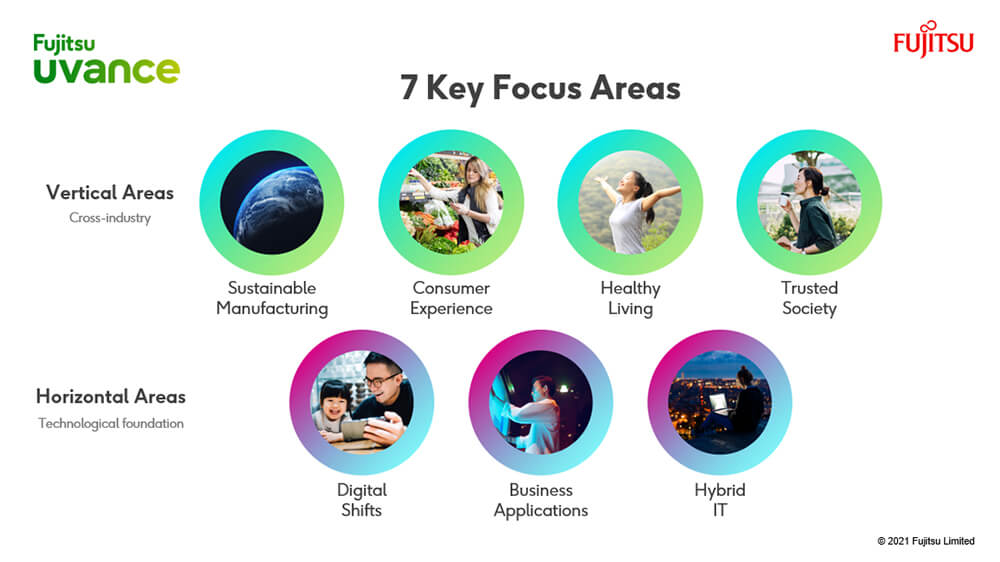
Fujitsu Uvance and 7 Key Focus Areas
Mahajan said the evolution of technology over the next decade will lead to significant advances in key areas, including fast computing resources such as quantum computers; high-speed ubiquitous networking; work automation and AI-based decision making; information security; and the convergence of technology and people’s everyday experiences.
Another Fujitsu keynote speech featured Hirotaka Hara, Representative Director and Head of Fujitsu Research, and Yoshikuni Takashige, who leads Fujitsu’s Technology Strategy Unit. Their theme was "Fujitsu's Technology Vision and R&D Strategy towards a Sustainable World."
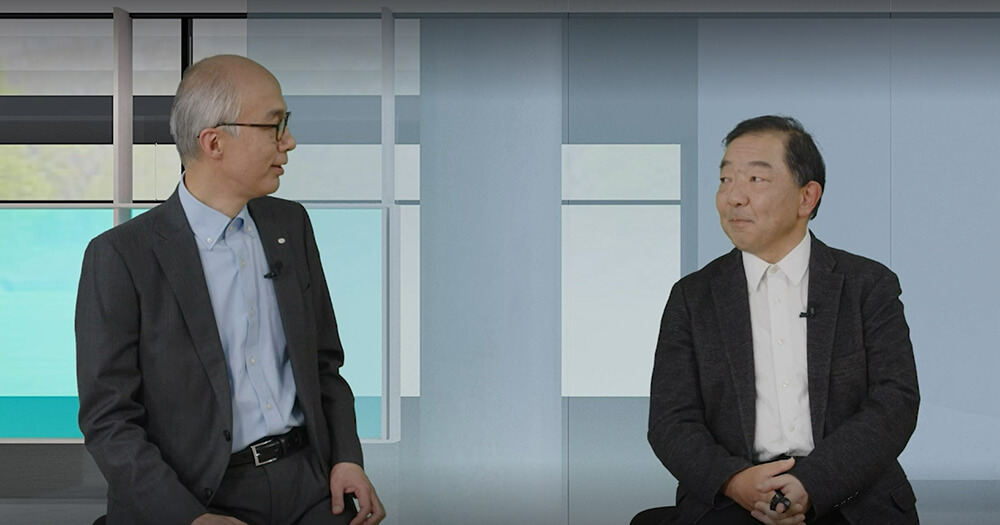
Talk Session with Hirotaka Hara, Representative and Head of Fujitsu Research & Yoshikuni Takashige, Executive Director, Technology Strategy Unit Fujitsu: Fujitsu's vision and R&D strategy to make the world more sustainable with technologies
Fujitsu is looking at innovations that should occur by 2030, and by “back-casting” from there, R&D and each business unit are formulating strategies that should be taken now. This is described in the annually updated "Fujitsu Technology and Service Vision ". Takashige called it a compass to help navigate, especially in times of uncertainty. He explained that we are all experiencing the "great reset" due to the pandemic, and that people have become increasingly aware that we must make a priority of our environment, and the well-being of people and society. He said business leaders around the world now regard sustainability as important to their mission.
It was in this context that Hara touched on Fujitsu's two visions of innovation: "Transformation in discovery" and the "convergence of digital technologies with humanities and social sciences".
Discovery needs to be accelerated in all fields, he said. By integrating quantum technologies into high-speed computers and using digital annealing technology, it will be possible to solve complex combinatorial problems using large data sets. In a joint development with Toyota Systems, for example, Fujitsu is working to optimize large-scale logistics by selecting effective routes from 3 million options. In drug discovery, Fijitsu is working with Japanese bio-venture PeptiDream to narrow down candidate compounds for Covid-19 drugs.
AI is another key domain. "Discovery AI" makes it possible to autonomously infer causal relationships between complex data and is expected to help derive effective gene therapy methods for cancer patients.
"Convergence" integrating the humanities and social sciences with digital technology, is an even more interesting development. Dynamic elements such as human behavior are intertwined in social problems, and it is necessary to combine data-driven intelligence with human-centered insights to solve them, Hara said.
To meet this challenge, Fujitsu devised the concept of "social digital twin". This makes it possible, for example, to evaluate the effects of policies aimed at reducing CO2 through traffic simulations based on behavioral models. Similarly, the balance between maintaining people’s health and economic activities during a pandemic or providing support in the event of a natural disaster can be achieved in a flexible way. Takashige also said that social digital twins can also show a clear and convincing effect for stakeholders in achieving sustainability.
They also argued that trust is now a vital currency and that the industry, which has traditionally prioritized profits, is under pressure to change. Takashige said blockchain should become a platform as a means of ensuring the intangible value of trust. "Now is the time to take concrete actions," he said in his conclusion.
Making the Internet More Powerful, for Everyone
The keynote interview featured Tim Berners-Lee. Best known as the inventor of the World Wide Web, he responded to questions from CTO Mahajan. Their in-depth discussion touched several areas, and looked especially at data privacy.
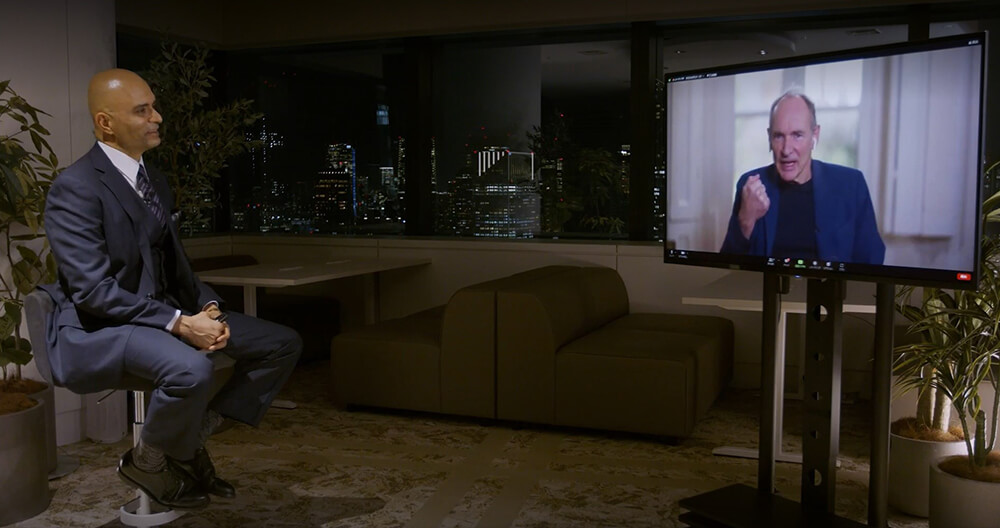
Interview with Sir Tim Berners-Lee, inventor of the World Wide Web, led by Vivek Mahajan, Chief Technology Officer of Fujitsu: The impact of the COVID-19 pandemic on the internet and how technology will support the future of the World Wide Web
Berners-Lee said he devised the Web to become “anything for anyone” and is watching to see if it remains constructive today. There are many challenges now, he said. The Internet was used to manipulate people psychologically during America’s 2016 elections. Cybercrimes and misinformation are rampant. It will be difficult to completely fix this, he said.
He also expressed concerns about privacy issues. People’s data is now used to target and manipulate them individually. Information that people create themselves on social media may be siloed so that it cannot be migrated to other platforms. To solve this data issue, he launched the Solid Project in 2016.
The Solid Project is a mechanism whereby all personal data -- such as social media posts, photos, medical data, credit card records, etc. -- are stored in a “Solid Pod”, and individuals can decide who will use it and how. It can also be used by companies for their employees, and the Flemish local government of Belgium has also started to use it. By using such a mechanism, trust can be created between the data owner and the user, and data sharing is further promoted. As a result, it will create great value in such areas as medical research as well as business.
Berners-Lee said the reality of the Internet was revealed during the pandemic. While it connected people, only one-third of children in the UK had full access to the internet for remote education; another one-third had no internet connection at all, and the remaining one-third did not have fully functional devices when they did connect. While we need to make the web powerful, he warned that if we don't recognize this digital divide and change the way we do things, the gap will only get wider.

Related information
Editor's Picks






